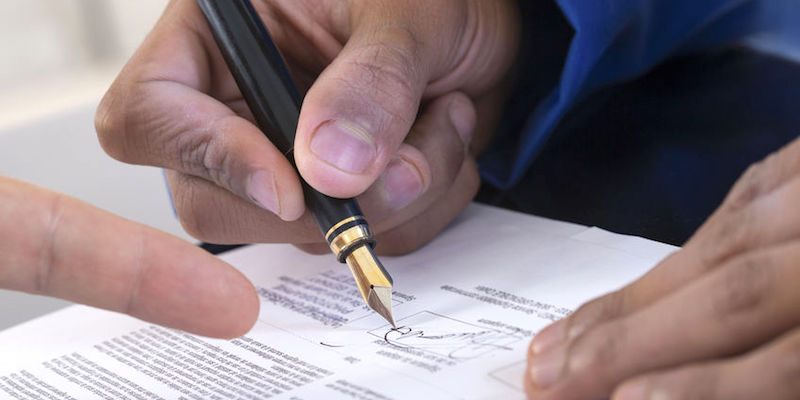Colorado limits recovery for damages under the state’s economic loss doctrine, which states that an injured person cannot seek compensation if a contract was in place between the parties and the only damage that occurred was to the product alone.
Liability for Injury Without Proof of Fault
Most personal injury lawsuits focus on some sort of negligent behavior on the part of one party that makes them liable (at fault) for another person’s subsequent injury. But there are times a party can be considered liable — absent a finding of fault — simply because the circumstances surrounding the injury were believed to be inherently dangerous. This describes the legal theory known as strict liability.
In Colorado, individuals can be held strictly liable for injury in certain circumstances, such as those described below.
Colorado Dog Bite Injuries
Most states decide dog bite cases under either strict liability or negligence, but Colorado uses a combination of both. A state law holds a dog owner strictly liable for dog bites, but only if the bite victim sustains severe bodily injury or dies from the bite while lawfully on public or private property. If the injury is not serious or deadly, negligence rules will apply.
Colorado’s dog bite law applies regardless of the vicious or dangerous propensity of the dog or the dog owner’s awareness (or lack of awareness) of this tendency. The victim is only entitled to recover economic damages (not pain and suffering, emotional distress, etc.) in a civil lawsuit against the dog owner.
However, a dog owner will not be strictly liable for the bite injury if the victim:
- Is on public or private property unlawfully
- Is on private property marked with warning signs stating “no trespassing” or “beware of dog”
- Clearly provoked or antagonized the dog
- Is functioning in his or her capacity as a veterinary worker, groomer, humane agency staff member, professional handler, trainer, or dog show judge
The dog owner will also not be held strictly liable for the bite if the dog is working as a hunting, herding, or farm and ranch dog, or as a predator control dog on the property of or under the control of the dog’s owner.
Dangerous or Defective Products
Colorado product liability cases can also be based on either negligence or a strict liability. Strict liability claims typically include design defect, manufacturing defect, and the failure to adequately warn consumers.
To prevail in such a claim, the injured person will be required to show that the product was unreasonably dangerous:
- For design defect claims, the injured party must establish that the product’s design made it inherently dangerous.
- For manufacturing defects, it must be proven that a problem occurred sometime during the production process.
- Even if the product was designed and manufactured properly, a strict liability claim can still be brought if it can be proven that the adequate warnings about dangerous aspects of the product were not given.
Those facing product liability lawsuits might try to argue that they are not responsible for an injury because someone else modified the product after it left their control, that the product was not used properly, or that the injured person knowingly assumed the risk of using the product in its faulty condition.
Colorado limits recovery for damages under the state’s economic loss doctrine, which states that an injured person cannot seek compensation if a contract was in place between the parties and the only damage that occurred was to the product alone.
If you suffered an injury that falls under the theory of strict liability in Colorado, contact Colorado personal injury attorney Daniel R. Rosen for comprehensive legal advice.

